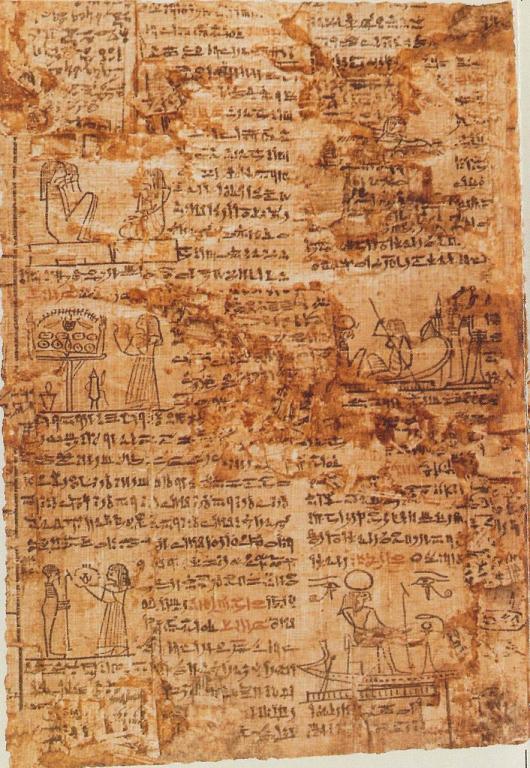
Jeff Lindsay has just published a new article in Interpreter: A Journal of Latter-day Saint Faith and Scholarship:
“A Precious Resource with Some Gaps”
Review of The Joseph Smith Papers, Revelations and Translations, Volume 4: Book of Abraham and Related Manuscripts, eds. Robin Scott Jensen and Brian M. Hauglid (Salt Lake City: Church Historian’s Press, 2018), 381 pages.
Abstract: The publication of high-resolution documents and carefully prepared transcripts related to the origins of the Book of Abraham in The Joseph Smith Papers, Revelations and Translations, Volume 4: Book of Abraham and Related Manuscripts is a remarkable achievement that can help students of Church history and of the Book of Abraham explore many aspects of that volume of scripture for themselves. The book, especially when coupled with the resources and advanced interface of the Joseph Smith Papers website, will provide lasting value for scholars, students, and anyone wishing to better understand the Book of Abraham and its complex origins. However, there are some gaps in the book that must be understood, including a mix of minor errors, questionable assumptions, and a few major problems that can unnecessarily lead readers to question the ancient roots and the divine inspiration behind the Book of Abraham. A future addendum could help resolve many such issues and would be a welcome addition. However, there may be a fundamental flaw in the commentary that tends to align with the way critics of the Church approach the Book of Abraham as a product of Joseph’s environment rather than a text rooted in revelation and antiquity. Sadly, in spite of hundreds of footnotes with extensive references to the research and perspectives of some scholars, this volume tends to exclude a great deal of relevant research provided by some noteworthy scholars. For example, it fails to mention even once the past scholarship of Hugh Nibley on these documents and generally neglects the work of other scholars that can point to the strengths of the Book of Abraham and give tools for coping with the thorny issues. The openness about the conundrums of the Book of Abraham should be encouraged, but it should be balanced with at least an awareness that there are noteworthy positives that readers can weigh against the question marks, and that there are frameworks that can help faithful readers understand how a divinely revealed text can be produced by the same man who wanted to begin learning Egyptian and Hebrew after he had already provided divine translation. Such a balance is needed in a book from the Church dealing with such sensitive issues, where misunderstanding has led some people out of the Church. Sadly, in spite of its many achievements in opening the doors to the documents associated with the Book of Abraham, this book lacks the balance that is needed.
***
I look forward to hearing (on Sunday, I expect) about how this goes:
***
I genuinely wish that I and others didn’t need to respond to Mr. Jonathan Neville, but, alas, we do. Here are three more links from the “Neville-Neville Land” blog:
“Sorry, Brother Neville, but words mean things”
““There was one set [of plates] and one set only.””
“Those who live in glass houses…”
Incidentally, I’m not at all bothered when people discuss ideas and critique publications or blog posts substantively but anonymously (say, in the manner of “Publius” in the Federalist Papers). And that is what I judge “Captain Hook” and “Peter Pan” to be doing on their “Neville-Neville Land” blog.
What I object to is personal attacks — e.g., defamation and character assassination, malicious rumor and gossip, trumpeted through the incomparable megaphone of contemporary social media — launched publicly but from behind a cloak of anonymity.
It seems to me a minimal basic requirement of both justice and fairness that a person who publicly targets a named individual or group of individuals for personal attack should disclose his or her own personal identity. That way, the playing field is level. And, that way, outrageous slanders and innuendos will be discouraged, because of the risk that the accuser’s own public reputation runs in the case of false accusations and grievous distortions. Not to do so, unless there are very, very serious concerns regarding safety, security, or something closely analogous thereto, is mere cowardice.
***
On a distinct but closely related topic, I recommend this, by Zander Sturgill:
“Is This The Real Hill Cumorah?”











